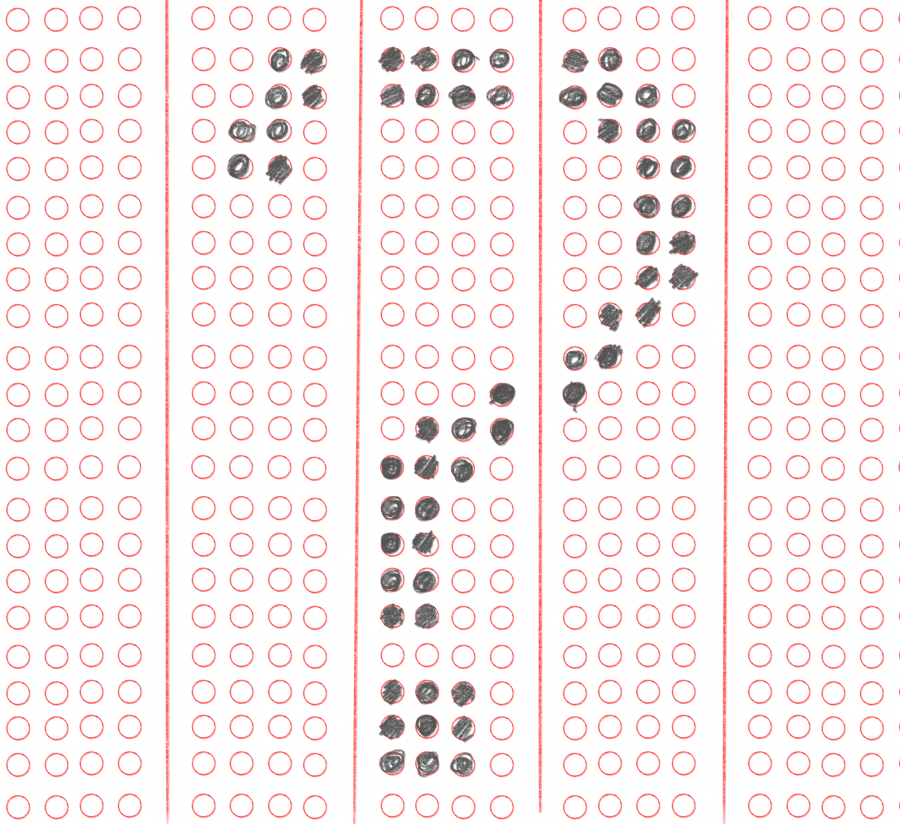When I walked out of my first neuroscience midterm, all the emotional tension I had over the previous weekend manifested in my limbs, and it seemed like I dragged myself home more than I walked.
As dreary as I felt, though, I walked out of that exam feeling confident. I knew I had mastered the material my professor had talked about in class. I knew exactly what my weaknesses were and what I still needed to study. I had never felt that way coming out of an exam, and I know why this one was different. Right after the exams had been turned in, my professor, Michael Mauk, went over all the answers immediately following the exam.
As I reflect on this experience, I can’t help but feel frustrated that this was the first time in college that a professor went over the answers to a midterm exam. In some of my other classes, we went over the exam in discussion sections almost a week after the test. Other professors posted answer keys with only the answers highlighted or filled in. I can appreciate how stressful professors’ lives can be, but this simply isn’t enough to help students succeed. Professors should consider taking class time to review the answers to midterm exams.
There’s scientific evidence supporting that revision of answers to tests optimizes the learning process.
“Neuroscience actually tells us that when we go to sleep, we consolidate long-term memories. So if you have all this information about the test and what your answers are, you’ll consolidate that into your memory of the material,” said neuroscience graduate Rachel Langan, who was a teaching assistant for Mauk’s class for three years. “We want you to consolidate the answers that are actually correct so later it’s not as hard to rebuild a new memory on top of an old, wrong one.”
Plan II and neuroscience sophomore Julia Mitterer-Claudet thinks she has personally benefited from Mauk’s policy of reviewing answers right after the final.
“It’s like (a) built-in review because when he goes over the answers, it solidifies my understanding and lets me know what I need to restudy,” Mitterer-Claudet said.
Of course, I understand that many professors cannot feasibly implement the same policy that Mauk has. Organic chemistry tests, for example, are anywhere between two and three hours long, and I can’t imagine that anyone would want to stick around and go over answers after one of those exams. There are plenty of other options, though.
“I would totally go to a review session after an exam because it’s helpful to have (the professor) explain anything you’re confused about,” said Mitterer-Claudet. Additionally, professors or TAs can upload short videos to Canvas in which they explain the test answers and go over the key concepts each question was meant to test so that every student has access to detailed, accurate information.
I know I’m asking a lot of professors who are already overworked and tired, but tangible benefits come from this kind of policy. Mauk started implementing his revision policy a few years ago, and since then, Langan has noticed a significant improvement in students’ understanding of the course material.
“It’s really popular,” Langan said. “Students themselves come up to me or Mauk and report that this is really helpful.”
Some may say that this is the exact reason why office hours exist, but what about the students whose class schedules conflict with office hours? And why should a professor have to review the same questions over and over when they could just go over questions once for all their students?
The science is there. The results are there. The tools are there. All that’s left is for professors to take the leap and start going over test material with their students. Mitterer-Claudet said it best: “If exams are a way to test your understanding and how you’re doing in a class then it shouldn’t be just something you take and move on. Taking that extra step to go over the exam makes (tests) a productive means of evaluation instead of just a grade in the grade book.”
Dasgupta is a neuroscience sophomore from Frisco.





















